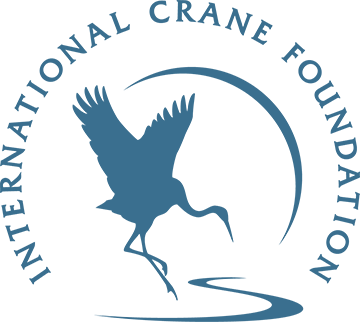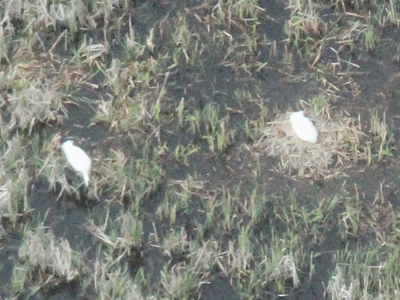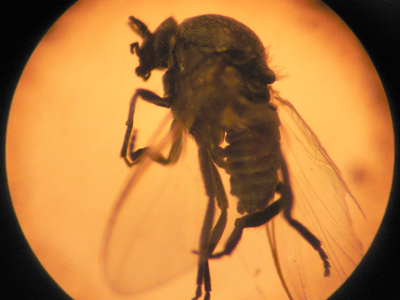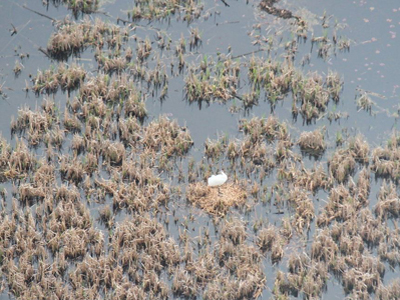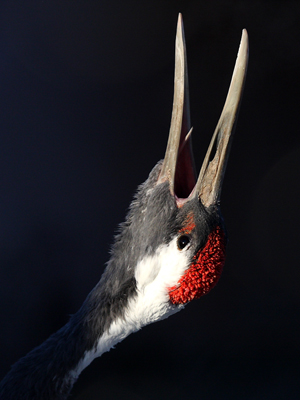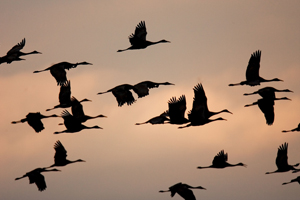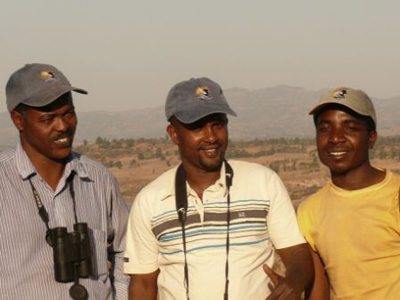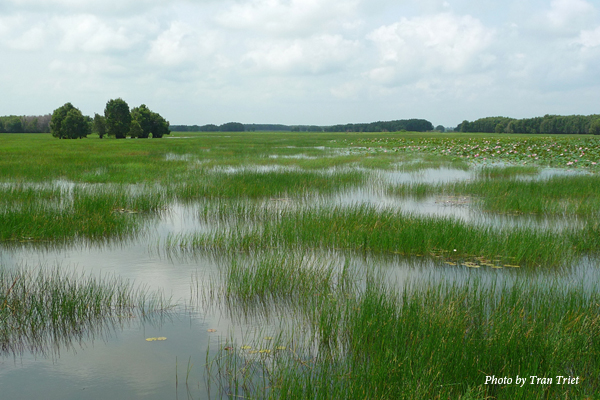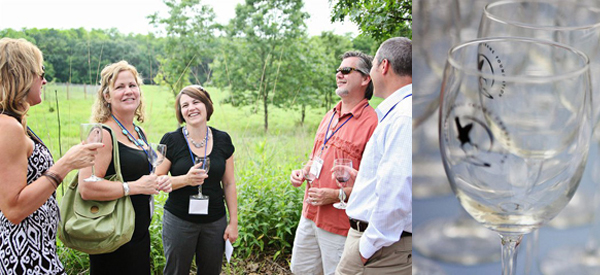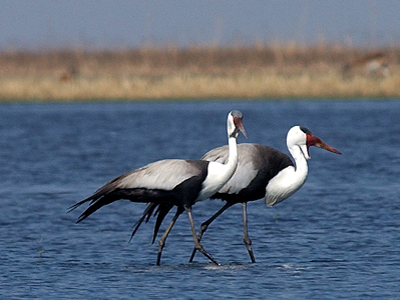 The Whooping Crane Eastern Partnership (WCEP) is celebrating another success in its efforts to reintroduce a wild migratory Whooping Crane population in eastern North America. A Whooping Crane chick hatched yesterday in Wood County, Wis.
The Whooping Crane Eastern Partnership (WCEP) is celebrating another success in its efforts to reintroduce a wild migratory Whooping Crane population in eastern North America. A Whooping Crane chick hatched yesterday in Wood County, Wis.
Author: Sara Gavney Moore
Whooping Crane Shot in South Dakota
 ICF is saddened to report on the fatal shooting of a Whooping Crane in South Dakota. The migrating adult crane was from the Aransas/Wood Buffalo population and was traveling with two Whooping Cranes when it was shot with a rifle while standing in a corn field. Law enforcement officers with the U.S. Fish & Wildlife Service (FWS) and the South Dakota Department of Game, Fish and Parks are investigating the shooting which took place on April 20, 2012.
ICF is saddened to report on the fatal shooting of a Whooping Crane in South Dakota. The migrating adult crane was from the Aransas/Wood Buffalo population and was traveling with two Whooping Cranes when it was shot with a rifle while standing in a corn field. Law enforcement officers with the U.S. Fish & Wildlife Service (FWS) and the South Dakota Department of Game, Fish and Parks are investigating the shooting which took place on April 20, 2012.
Black Flies, Fake Nests and Planes!
 ICF’s Field Ecology Department (FED) staff are continuing their study of nesting Whooping Cranes in central Wisconsin and factors that may lead to nest abandonment. One hypothesis is that biting black flies may be harassing the cranes, to the extent that the birds cannot remain on their nest for the full 30-day incubation period. Following is an account of our spring research involving black flies, insect traps and fake nests, and planes!
ICF’s Field Ecology Department (FED) staff are continuing their study of nesting Whooping Cranes in central Wisconsin and factors that may lead to nest abandonment. One hypothesis is that biting black flies may be harassing the cranes, to the extent that the birds cannot remain on their nest for the full 30-day incubation period. Following is an account of our spring research involving black flies, insect traps and fake nests, and planes!
Spring Migration is Underway for “Class of 2011” Whooping Cranes
 The Whooping Crane Eastern Partnership (WCEP), an international coalition of public and private groups that is reintroducing Whooping Cranes to eastern North America, is pleased to report that last year’s “Class of 2011” Whooping Cranes have all begun their spring migration north.
The Whooping Crane Eastern Partnership (WCEP), an international coalition of public and private groups that is reintroducing Whooping Cranes to eastern North America, is pleased to report that last year’s “Class of 2011” Whooping Cranes have all begun their spring migration north.
Opening Day!
 On Sunday, April 15th the International Crane Foundation (ICF) officially opens to visitors and our performers (the cranes) are dusting off their feathers, dancing and bugling to get ready.
On Sunday, April 15th the International Crane Foundation (ICF) officially opens to visitors and our performers (the cranes) are dusting off their feathers, dancing and bugling to get ready.
Voice Your Opinion on Sandhill Crane Hunting in Wisconsin
 In early February 2012 Wisconsin State Representative Joel Kleefisch introduced a bill proposing a regulated Sandhill Crane hunt in the state, citing the need to control crop damage by cranes. Though this bill never made it to a vote during this spring’s legislative session, a Sandhill Crane hunting bill will likely be introduced again in the future. For now, the state’s discussion on the Sandhill Crane hunting issue will continue in forums like the upcoming Conservation Congress meetings on April 9, 2012.
In early February 2012 Wisconsin State Representative Joel Kleefisch introduced a bill proposing a regulated Sandhill Crane hunt in the state, citing the need to control crop damage by cranes. Though this bill never made it to a vote during this spring’s legislative session, a Sandhill Crane hunting bill will likely be introduced again in the future. For now, the state’s discussion on the Sandhill Crane hunting issue will continue in forums like the upcoming Conservation Congress meetings on April 9, 2012.
Travels in Ethiopia
 Following a trail blazed by German crane colleagues and through transportation gratis ICF’s official Airline, Lufthansa, I spent nineteen memorable days in Ethiopian landscapes and sunshine. The visit perhaps will, with good fortune, result in the acceleration in the study and conservation of wetlands vital to more than 1,368 Black Crowned Cranes and 213 Wattled Cranes and uncountable thousands (for me at least) of migrant Eurasian Cranes that we observed.
Following a trail blazed by German crane colleagues and through transportation gratis ICF’s official Airline, Lufthansa, I spent nineteen memorable days in Ethiopian landscapes and sunshine. The visit perhaps will, with good fortune, result in the acceleration in the study and conservation of wetlands vital to more than 1,368 Black Crowned Cranes and 213 Wattled Cranes and uncountable thousands (for me at least) of migrant Eurasian Cranes that we observed.
Sarus Crane Wintering Area Wetland of International Importance
 For more than 25 years, ICF has been deeply involved in the establishment and management of what is now Tram Chim National Park, the largest wetland conservation area in the Mekong River Basin of Southeast Asia. Earlier this year, Tram Chim was designated a Wetland of International Importance through the Ramsar Convention, an international treaty for the conservation and wise use of wetlands.
For more than 25 years, ICF has been deeply involved in the establishment and management of what is now Tram Chim National Park, the largest wetland conservation area in the Mekong River Basin of Southeast Asia. Earlier this year, Tram Chim was designated a Wetland of International Importance through the Ramsar Convention, an international treaty for the conservation and wise use of wetlands.
An Evening with the Cranes 2012
 An Evening with the Cranes will be held at ICF’s headquarters in Baraboo, Wisconsin from 5:00 to 8:00 pm on Saturday, June 23, 2012. Tickets are $60 per person/$100 per couple.
An Evening with the Cranes will be held at ICF’s headquarters in Baraboo, Wisconsin from 5:00 to 8:00 pm on Saturday, June 23, 2012. Tickets are $60 per person/$100 per couple.
Inspired by the regions where cranes live, people can expect delicious food and wine pairings created by Jim and Christine Dickey, owners of Little Village Café in Baraboo. Ignite your senses with exotic flavors, crane calls, and gorgeous trails winding through our prairie. During the evening you will have the opportunity to meet ICF Co-founder Dr. George Archibald, ICF scientists, educators, and of course, cranes!
Major Conservation Victory in Mozambique!
 The International Crane Foundation (ICF), together with World Wide Fund for Nature (WWF) and the Museum of Natural History and other key partners in Mozambique, congratulate the Government of Mozambique for their wise decision to not allow the dredging of the lower Zambezi River and Delta for coal barging.
The International Crane Foundation (ICF), together with World Wide Fund for Nature (WWF) and the Museum of Natural History and other key partners in Mozambique, congratulate the Government of Mozambique for their wise decision to not allow the dredging of the lower Zambezi River and Delta for coal barging.
ICF’s President and CEO, Dr. Richard Beilfuss, was deeply involved in preparing the Environmental Impact Assessment and subsequent communications with the Mozambique Ministry of Environment concerning the need for a holistic, ecosystems approach to Zambezi River basin development.
